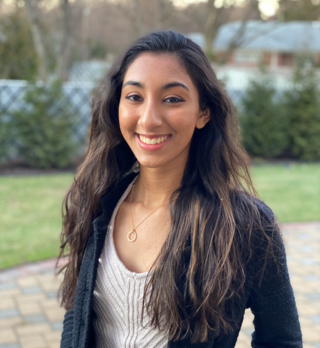Friends
Free New Course for Teenagers Whose Friends Are Self-Harming
Like Al‑Anon for people with addicts in their lives, this is for the friends.
Posted January 7, 2021 Reviewed by Matt Huston
Priya Patel is a 16-year-old high school student in Edison, New Jersey. Three years ago, she learned that two of her closest friends were cutting themselves.

After Priya noticed that one of her friends had bandages on his arms, she asked him about it and he brushed her off. Shortly thereafter, another friend had cut-marks on their arm. Priya began to be very worried about her friends, but she had no clue how to help them. She didn't want to betray their trust by telling their parents or teachers. So she just kept quiet, not knowing how to help, and continuing to be concerned about her friends.
This phase lasted about six months before the two friends began to stop cutting themselves. Priya remains friends with one of these people, whom she says is now doing much better. Even still, Priya wishes she had known how to better handle the situation while it was going on. She is terrified of what possibly could have happened and wishes she could have been better equipped to help sooner.
In early 2020, Priya met Joe Polish, the founder of the non-profit foundation, Genius Recovery. Priya learned that Joe started Genius Recovery as a way to help himself (he was formerly an addict) and also to help other people. Meeting Joe and having this experience inspired Priya to create a way for teenagers to get the knowledge and tools they need to support their struggling friends.
There Are Few (if Any) Tools for the Friends of Those Struggling
After having looked online, Priya found that there were a lot of resources for kids, teens, and people who struggle with depression, anxiety, suicidal thoughts, and desires to self-harm. However, she could find no resources for the friends of those who were struggling. According to Priya, friends are often the "only line of defense" for their friends who are struggling with depression, self-harm, or suicidal thoughts. Yet, friends generally don't know how to help in a meaningful way, and instead, like Priya, feel helpless and unable to do anything.
Consequently, Priya created a free online program called "Peer Responders" as a tool for the friends of those who are struggling. The primary goal of Peer Responders is to provide "peers" with the tools they need to strengthen the "defense" of their friends who are struggling.
Peer Responders is a multiple-module course covering the following topics:
- Recognizing... your friend who needs your help by identifying and interpreting common signs
- Listening... and communicating with your friend through tactical empathy by asking the right questions
- Helping... your friend overcome struggles and find a better path
- Checking-In... with your friend and being an advocate across the bumpy road
- Respecting... the stories of survivors of suicide and mental illness
Priya was able to get several experts to serve as the instructors of the various modules. She interviewed a Standford psychologist, an FBI negotiator, addiction experts, people who spent years in prison and changed their lives, and others. There is a diverse array of experts and teachers, most of whom Priya herself interviews.
In full disclosure, I was one of the "experts" interviewed by Priya for this course. She reached out to me via email, sharing that she liked my work and wondered if I'd contribute to what she was creating. After hearing her story, and the mission behind Peer Responders, I was happy to contribute whatever knowledge I could.
True Change Requires Systemic Change
While getting my Ph.D. in psychology, I learned that in order for people to make meaningful and long-term change, they can't just look at themselves as isolated individuals. Instead, they must look at the surrounding system that supports their destructive behaviors or negative patterns.
It is for this reason that Al-Anon is such a powerful program. Al-Anon is similar to Alcoholics Anonymous, a free resource and community. However, Al-Anon is not for addicted people themselves, but for their families and friends. Al-Anon teaches family members how they may be contributing to the problem of their loved one's addiction and how they can not only cope with the challenges of that addiction but also stop contributing to it.
Conclusion
As someone who has dealt with a great deal of addiction and trauma in my life, with my father being an extreme drug addict while I was growing up, to my younger brother now continuing to struggle with addiction, I can see the value of and experience first-hand the benefit of resources like Al-Anon.
Peer Responders is similar in concept to Al-Anon, but for teenagers whose friends are struggling with self-harm, depression, or suicidal ideation. Peer Responders doesn't have a community or "meeting" element like Al-Anon does, but it's a great start. It's a free resource with expert-driven content to provide teens with the knowledge and tools to better support their struggling friends.
My hope and prayer is that those teens who are currently dealing with this situation can get the help they need, so they can be enabled to better help those around them who are struggling. And hopefully, through this, prevent tragedies from happening.




